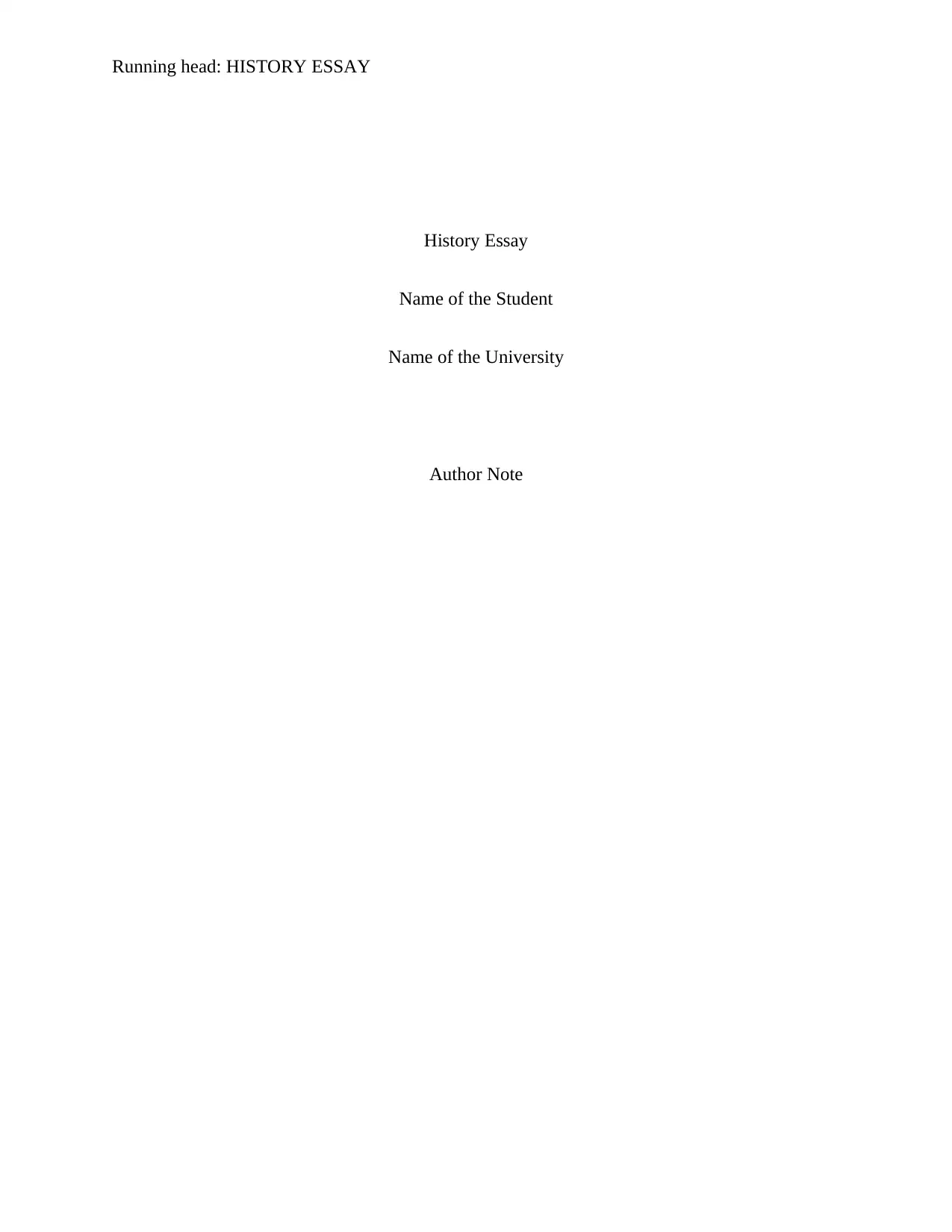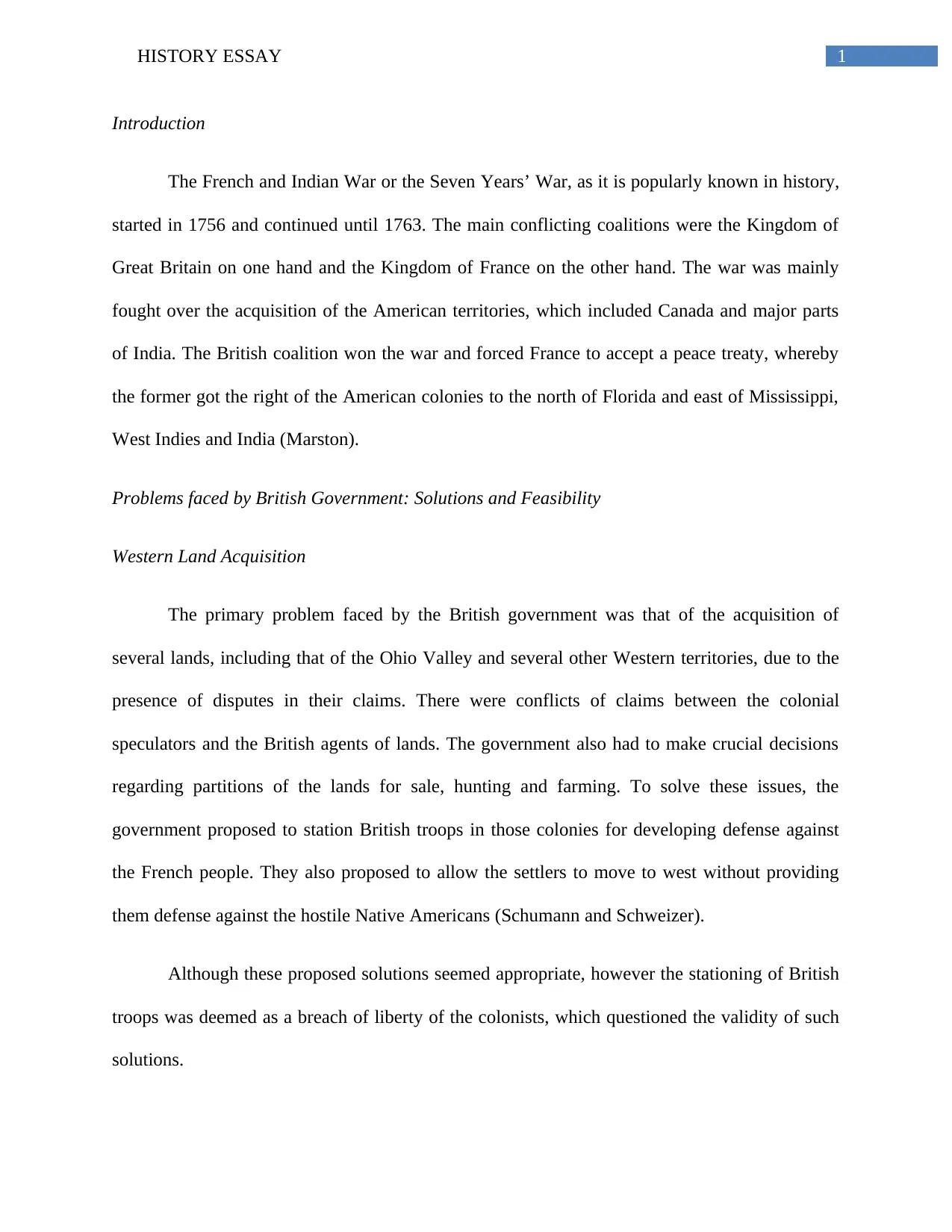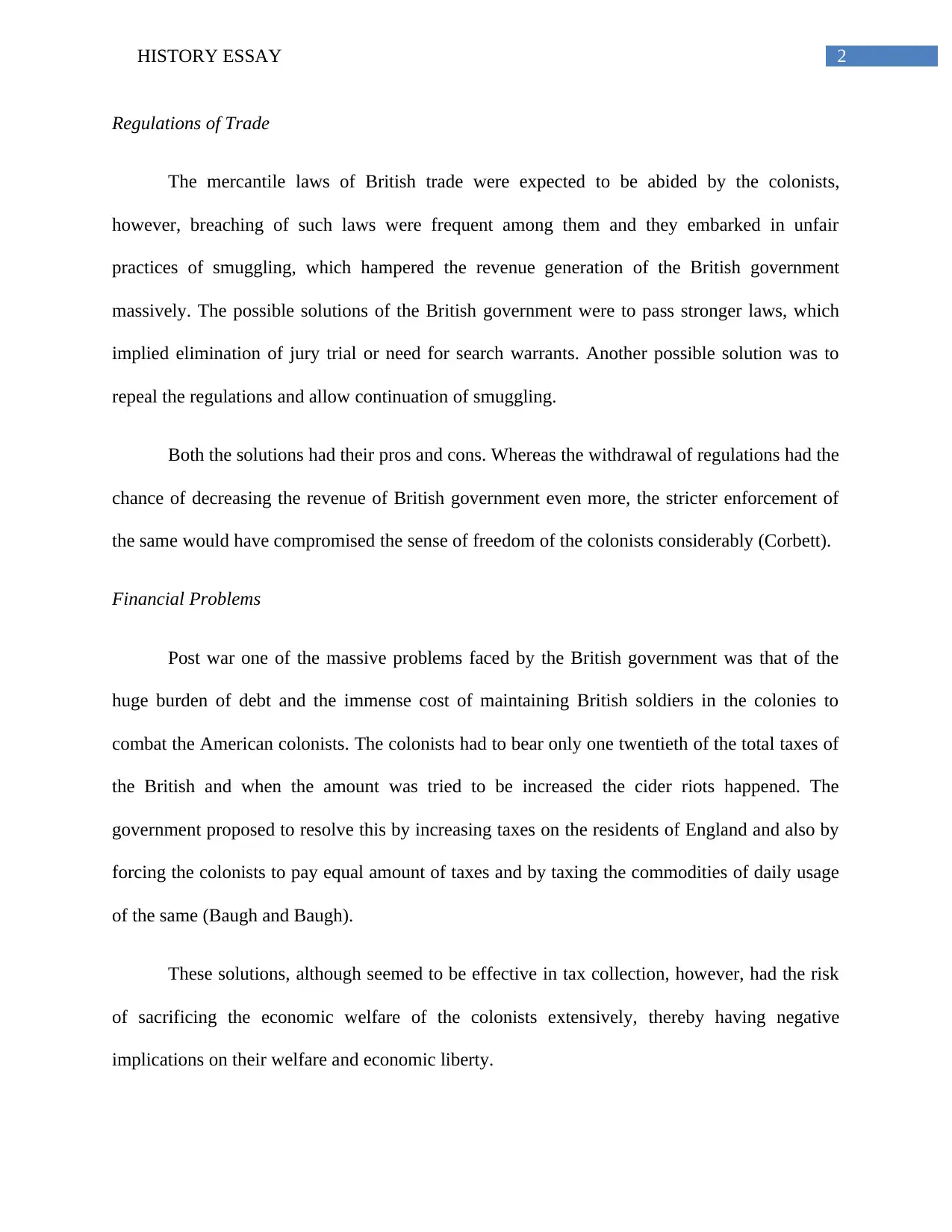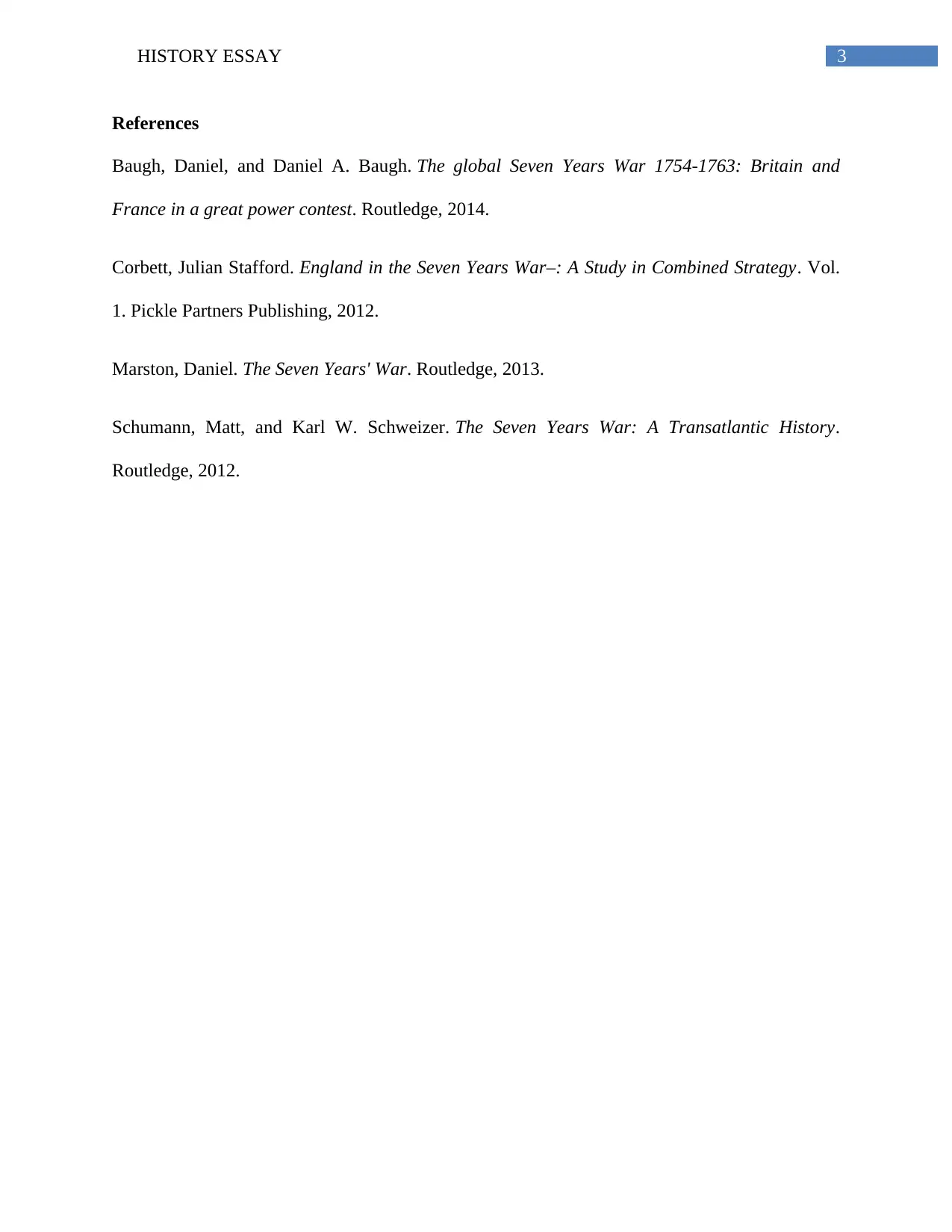Post-War Challenges: Problems Faced by British Government - History
VerifiedAdded on 2023/06/15
|4
|689
|149
Essay
AI Summary
This essay examines the problems faced by the British government following the Seven Years' War (French and Indian War), which lasted from 1756 to 1763. The key issues discussed include the acquisition of western lands like the Ohio Valley, the enforcement of trade regulations to combat smuggling, and the immense financial burdens of war debt and maintaining British soldiers in the colonies. The essay analyzes proposed solutions such as stationing troops, stricter law enforcement, and increased taxation, while also considering the feasibility and potential negative impacts of these solutions on the economic welfare and liberty of the American colonists. The essay concludes by referencing relevant academic sources.
1 out of 4











![[object Object]](/_next/static/media/star-bottom.7253800d.svg)